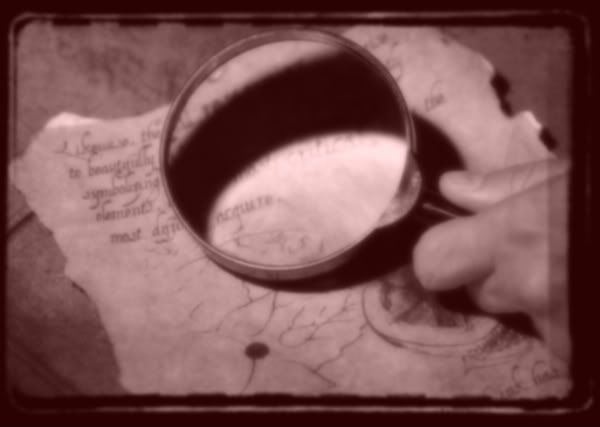 There is a new book making the rounds about false memories entitled “My Lie” by Meredith Maran. I listened to her interview on NPR (click here to listen to the interview) a few days ago. I found it to be fascinating and relevant to what many abuse survivors struggle with: the search for a reason to make sense of your struggles. For many of us, the abuse seems dream-like at times or disjointed with large missing pieces and blank spots that seem to feel unnerving or even threatening.
There is a new book making the rounds about false memories entitled “My Lie” by Meredith Maran. I listened to her interview on NPR (click here to listen to the interview) a few days ago. I found it to be fascinating and relevant to what many abuse survivors struggle with: the search for a reason to make sense of your struggles. For many of us, the abuse seems dream-like at times or disjointed with large missing pieces and blank spots that seem to feel unnerving or even threatening.Contrary to television crime shows, where a witness has perfect recall as if their memories are TiVo'd - that's not the way our memories work. Particularly traumatic memories. Our minds are amazing machines that have been given the task of keeping us protected and functioning. Sometimes that means tucking away terrifying experiences into memory crevices that are hard to locate, or coding them a bit differently from non-traumatic memories so they are recalled differently. This is often the reason that memories comes to you in bits and pieces, rather than a cohesive stream of information. Another facet of trauma recall is the age you were when abuse occurred versus the age you are when the memories take front-and-center for you. For example, in my late 40’s, I located the house where much of my abuse occurred. In my mind, I remembered the house as an enormous, haunted-house type mansion where you could practically hear perpetual thunder and lightning crackling across the rooms. I was quite shocked to discover a rather small, modest-sized house. I recognized the rooms. I recognized the lot. I recognized the house, but I remembered it through the size and experiences of a child, and I revisited it through the size and experiences of an adult.
But there's also a dark underbelly to those blank spots for which you have no answers. It has devastating consequences if you're manipulated like the author of “My Lie” was. That is the phenomenon of false memories. It usually takes place when distressed or depressed people are placed in highly vulnerable or suggestible situations, and convinced by others (often an untrained person or poorly trained counselor) that the reason for their struggles is "Scenario A" or "Scenario B," even when there is no evidence of any kind to make such a suggestion. Yes, we're all looking for answers to why we struggle with depression or rage or eating disorders or addiction. That's understandable, particularly when there seems to be no apparent reason why these issues exist. But solid academic research and common sense tells us that to suggest an abuse scenario when no such memory has been otherwise recalled, is both dangerous and irresponsible.
False memories are not deliberate lies. They are real memories - manipulated memories - of an event that did not take place. I say this often, but if you cannot recall a memory of abuse, but struggle with many of the secondary issues of abuse (depression, anxiety, self-injury, etc.), then what you need to work on are THOSE secondary issues. The "why" of those issues may become apparent to you at some point, but NEVER ever ever ever let someone suggest (either in person or through a teaching) that abuse has taken place when you are not aware of it in the first place! This muddies the waters and never gives truth an opportunity to surface in an organic way that has more integrity that suggestions do.
You may be feeling a bit defensive as you read this. That, too, is understandable. The other side of this coin is that many of us - abuse survivors - were either not believed or had our experiences minimized when we told. To have your experiences dismissed or minimized feels like the deepest kinds of betrayal - particularly when those who do so are the ones you need the most - your family or friends. When the subject of false memories is brought up, it may feel extremely threatening to you because you DO remember. You KNOW what happened. You LIVE with the scars every day from the abuse you suffered. Just like ignorant people who suggest abuse without evidence, other ignorant people will use this phenomenon of false memories to whisk away legitimate accusations and experiences of abuse. Ignorance is NOT bliss on either side of this.
For many abuse survivors, it takes years - sometimes decades - to become strong enough to disclose the abuse that occurred. That's pretty common, too. There are many reasons for this delay - fear, threats, consequences, and the shattering of the "perfect family" or "perfect pastor" or "perfect neighbor." Personally, I didn't disclose my childhood abuse by my grandfather until I was in my 30's. When you have this kind of delay in disclosure - people will wonder (perhaps even ask you) why you didn't come forward with this information sooner? The reasons for delay are as varied as the individuals who experience abuse. For me, I just didn't want to rock the boat - I wanted to pretend that everything was okay and not have to deal with the questions, the disruption in the ways things had always been, or hurt some people that I loved. It's probably safe to say that disclosure of abuse is rarely met with joy or relief - although there are probably exceptions to that - but when it's time for you, IF it's time for you - then you need to be prepared for the fall-out that will most certainly come. Am I better off because I disclosed? Yes and no. It's complicated - as anyone who has this experience knows.
Take time with your memories and experiences. Don't be so concerned about WHAT you remember as WHAT you're struggling with. If you're depressed and you come from a good home, have a good life, and have no recollection of any trauma or abuse, then deal with the depression. Period! If you're depressed and have memories of trauma and abuse, then connect those dots to see the cause-and-effect and work to restructure how you think about yourself and the present, in the context of your past.
False memories rip off the truth, and most certainly do great harm to people who have truly experienced trauma and abuse. Reality is what must be dealt with - whether or not you discover what those shadow memories are or are not. I believe those blank spots in your memories, those missing pieces - are God's way of protecting you until you're strong enough or in an appropriate place in your journey to look at them full-faced. I think they serve as a kind of spiritual bubble-wrap that will eventually dissolve when and if you're ready. Speaking to my own experiences, I only disclosed to others what I had known - but not acknowledged - most of my life. I looked away from it up until then. It just became a reality for everyone else when I told, but I had known it and not admitted it for decades. Personally, I believe that you will remember what you need to remember when you're ready. That won't come through hypnosis or manipulation. It comes through the honest pursuit of authenticity and integrity. Truth is truth. False truth is NOT truth. Healthy people seek truth, not manipulated explanations that may or may not have any basis in fact.
Written by Sallie Culbreth, Founder
Committed to Freedom . . . providing people with spiritual tools to help them move beyond abuse







